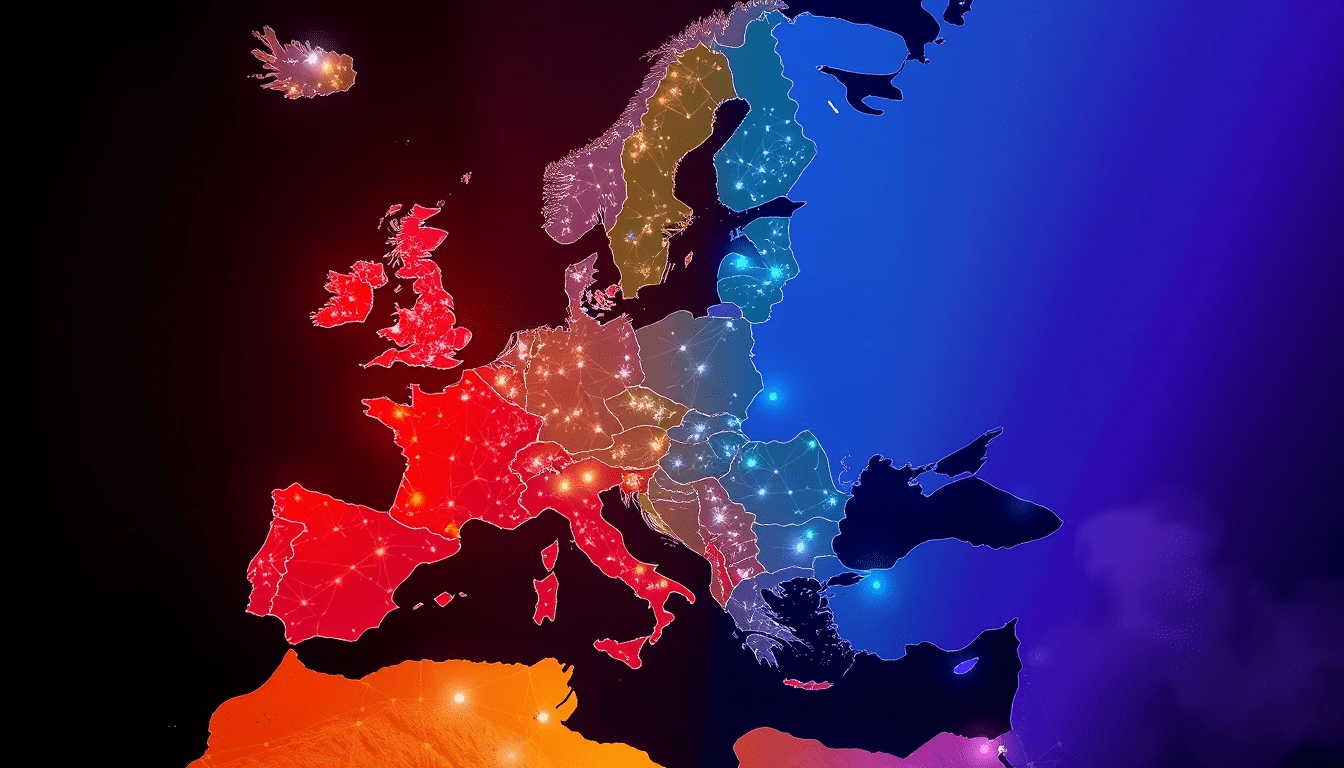Artificial intelligence: Is Europe at risk of being left behind?
21 Februar, 2025 | Aktuell Nicht kategorisiert
Artificial intelligence (AI) has found its way into all areas of the economy – often unnoticed. The insurance industry is no exception. Is there a risk of dangerous dependencies? The fact is that Europe is under severe pressure in the global competition. However, the French tech billionaire Xavier Niel, founder of the telecommunications giant Iliad and co-founder of the programming school École 42, emphasises that Europe is still competitive. ‘The best AI developers are Europeans,’ said Niel in an interview with Die Welt. But the question remains: will Europe fall behind, or can the continent use its strengths to survive in the global AI race?
Europe has a long tradition of research and development in technology, and this also applies to AI. Companies such as DeepMind (originally from the UK, now owned by Alphabet), Mistral AI from France and Aleph Alpha from Germany are two examples of European AI companies that are gaining international recognition. France’s Mistral AI, in particular, has positioned itself as a serious competitor to American AI giants such as OpenAI.
In an interview with Die Welt, Xavier Niel emphasises that Europe has talented developers who have been trained at excellent universities. ‘The best AI developers are Europeans, including many French people,’ he says. These talents are a decisive factor in keeping up with the global competition.
Europe vs. USA: How big is the gap?
The US is currently ahead when it comes to the development and application of AI technologies. Companies such as OpenAI (the background of ChatGPT), Google (with DeepMind and Gemini), but also Microsoft dominate the market. The US benefits from strong financing, an innovation-friendly ecosystem and close cooperation between universities and industry.
Europe, on the other hand, struggles with stricter regulations and a fragmented research landscape. The AI Act of the EU, which is supposed to regulate AI, is often seen as an obstacle to innovation. However, Niel argues that Europe can offer a ‘third way’ between the US and China. ‘France and Europe can offer a third way,’ he says. ‘We have many trump cards in our hands.’
Is DeepSeek suddenly the biggest competitor of ChatGPT?
DeepSeek, a Chinese AI company, has attracted a lot of attention recently and is often mentioned as a potential competitor to OpenAI’s ChatGPT. However, DeepSeek is just one of many players in the global AI market. In Europe, there are also ambitious projects that could compete with ChatGPT. The French and German players mentioned are examples of European companies developing similar technologies.
Are there alternatives?
Besides ChatGPT and DeepSeek, there are a number of other AI models and platforms that are already being used today in various areas by insurance giants and innovative brokers, among others. These include:
– Google Gemini (formerly Google Bard): an AI model from Google based on LaMDA technology and developed for generating texts and dialogues.
– Microsoft Copilot: an AI-powered platform that assists developers with programming.
– Hugging Face: a company that offers open-source AI models and supports a large community of developers.
– Stability AI: known for its Stable Diffusion model, which has found its strength in image generation.
A Swiss perspective
Switzerland, known for its excellent universities such as ETH Zurich and EPFL, plays an important role in AI research. Local companies and startups are active in areas such as machine learning, robotics and biotechnology. However, they often lack the scale to compete with the big players from the US and China. Nevertheless, Switzerland could serve as an innovation hub that drives European AI developments.
Who will win the race?
The AI race is far from over. While the US is currently leading, Europe has the potential to catch up through its talented developers, strong research institutions and balanced regulation. Xavier Niel emphasises that optimism and investing in the right areas are crucial. ‘We need to act now to offer models that can be used in Asia and the US,’ he says.
Ultimately, the race will not only depend on technological advances, but also on the ability to use AI responsibly and for the benefit of society. Europe has the chance to play a leading role if it can strike the right balance between innovation and regulation.
Challenges and opportunities
Europe faces major challenges in the global AI competition, but also enormous opportunities. With talented developers, strong research institutions and a balanced approach, the continent can claim its place in the AI revolution. As Xavier Niel emphasises, optimism is crucial: ‘If we can master AI, it will simplify our lives and revolutionise medicine.’ Asia and North America are openly trying to lock our continent into dependencies that will be difficult to reverse. Europe must act now to avoid being left behind.
Binci Heeb
Also read: Medical advances in 2025: Impact on Health Insurance




